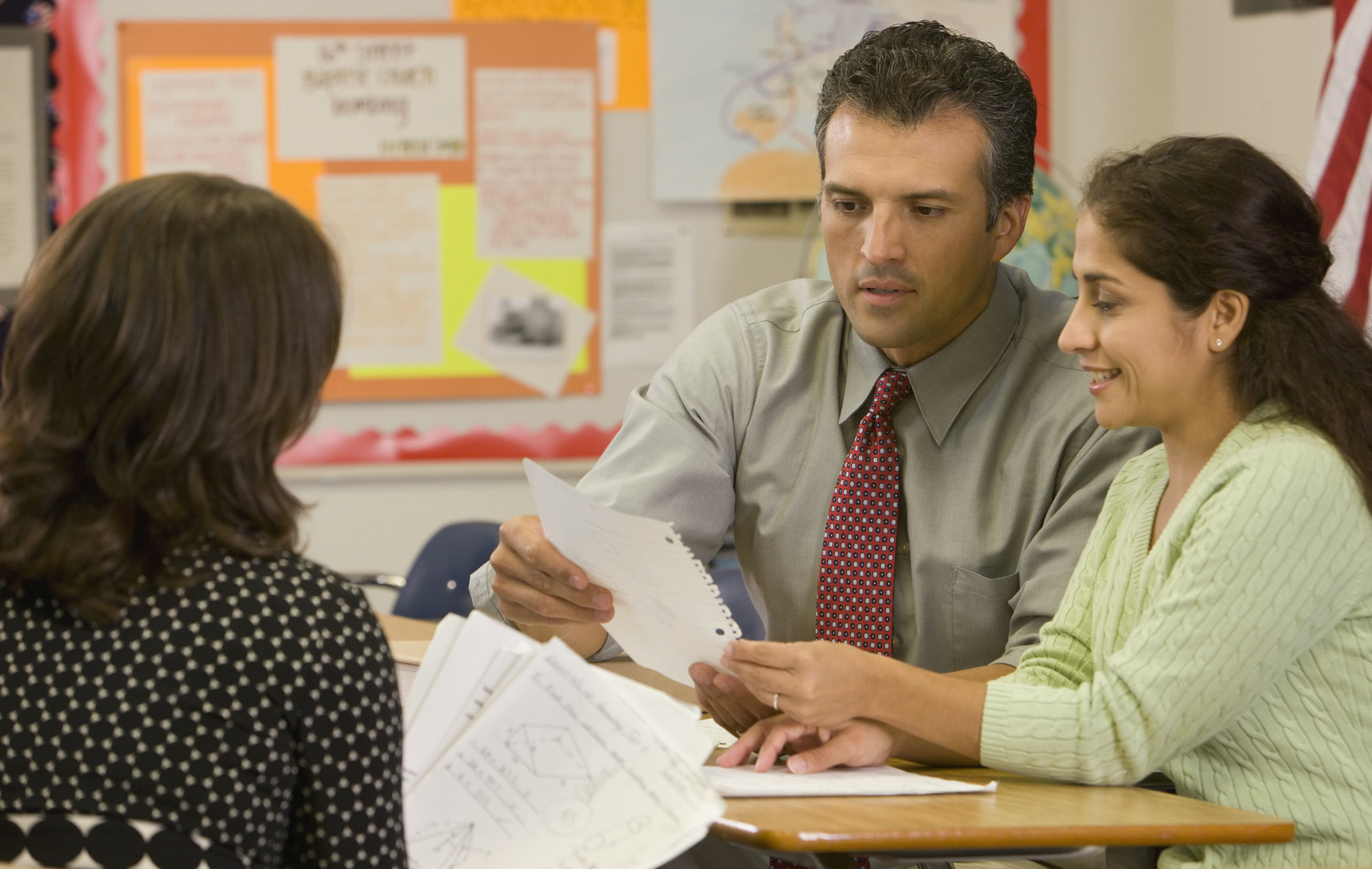Parents' evening: What to do and ask on your child's parents evening
Parents' evenings are really important - our guide will help you get the best from them.

Parenting advice, hot topics, best buys and family finance tips delivered straight to your inbox.
You are now subscribed
Your newsletter sign-up was successful
Parents' evening are an essential part of your child's development and while they're a handy way to know exactly what is happening in the classroom, they can be a stressful time for all involved.
If you're heading to your first parents' evening or if you want to make sure you're getting the most out of your next one by asking the right parents' evening questions, read through our informative guide...
Be organised for parents' evening, and prepare
Make a list of points you want to raise and take a notepad with you - it's easy to forget things. Ask your child for a list of teachers names and subjects before you go, says headmaster Andrew Smetham from Purbeck Secondary School, Dorset. There's nothing worse than arriving at a parents' evening and forgetting who teaches what.
At some schools, children have to book appointments for their parents. Make sure you have appointments with everyone you want to see, not just the teachers your child wants you to!
Re-read your child's reports and take them with you, advises educational psychologist Trevor Jellis. Think about what you want to discuss. For example, does your child have any particular problems or have their grades gone up or down recently.
Read more: School report day: What to do when your child gets a bad school report
Pin the teachers down
Don't accept comments such as 'John doesn't concentrate'. Ask for examples. In which class doesn't he concentrate? What does he do? From this, you could get some clues as to how to sort out the problem. Maybe he loses concentration before lunch, when he's hungry. Or maybe he just doesn't like certain subjects and they need to interest him more.
Parenting advice, hot topics, best buys and family finance tips delivered straight to your inbox.
Ask for privacy
If you want to speak privately to a teacher, ask in advance, says the National Confederation of Parent Teacher Associations. A good school will arrange this, says spokeswoman Margaret Morrissey.

Don't feel blamed
If the teacher criticises your child, don't feel totally responsible. Some teachers just expect the parents to sort out the problem, says educational psychologist Peter Kendall. Put the ball back into their court. Ask them what they can do. Say: 'We support our child as much as possible but you see a lot of him, too, so we'd appreciate your help in this area.'
How to deal with a difficult teacher
Be diplomatic, says headmaster Andrew Smetham. Don't tackle the teacher concerned but speak to the head of year and explain exactly what the problem is. Avoid vague statements such as, 'He's always making fun of my son.' Instead, go for specifics: 'On Monday, he held up my son's work in front of the class as an example of how not to do it.'
Read more: A parent's guide to Year 2 and Year 6 SATs papers
Talk about homework
Is your child doing enough and is it up to scratch? This is your chance to let the teacher know how long your child is spending on homework every evening. Maybe this is the time for you and the teacher to work together to make sure your child is getting the most out of that time.
Be friendly
You need your child's teachers to be on your side and it won't help your child if they think you're difficult or hostile. But also maintain eye contact to show you mean business. Don't overstay your welcome, get to the point and move on. You'll irritate the teacher if you keep repeating yourself and it's not fair on other parents waiting.

Work as a team
If you go with your partner, don't fight over who will ask the questions. And if you've split up, don't use the evening as another battleground.
Specific parents' evening questions to ask
- What are my child's weakest and strongest areas?
- How can you help him improve? (In other words: You're the teacher, please do something.)
- What can we do at home? For example, supervising homework, reading with her, going to exhibitions.
- How does my child behave in class? Is he too quiet or too chatty? Some children can be quiet at home but act the fool at school to cover inadequacies.
- How does my child compare with others in the class? Asking that doesn't mean you're being competitive, it just helps you to know the score.
Talk to the kids
Some secondary schools give you the option to take your child along. It can work well because he can then have his say. If you can't do this, spend time afterwards with your kids, going over what happened. Kids can feel threatened by parents' evenings, so reassure them and stress the positive. But also use the opportunity to work out how you can solve any problems.
Legally, schools have to hold at least one parents' evening a year. But if you don't feel that's enough, speak to the head teacher or write to the governors. A good school will always find time for teachers to speak to you individually if you're worried about something.
Trusted, informative, and empathetic – GoodToKnow is the ultimate online destination for parents. At GoodtoKnow, our mission is 'simple': we're trying to make sense of parenthood. On the site, you'll find everything you need for a happy, healthy family life. Our huge archive of content includes more than 18,000 articles and 1,500 how-to videos. These include expert-backed advice features on parenting, dealing with relationship changes after having a baby, self-care for mums and managing your family finances. We also feature tried-and-tested product reviews and buying recommendations for every stage of family life - from prams and Moses baskets to birthday gifts and top toys.